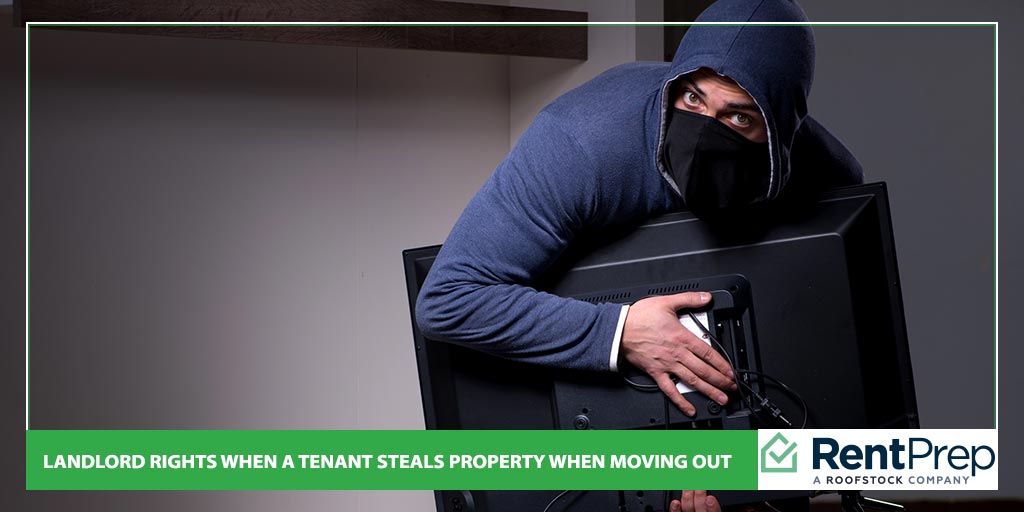
It can feel devastating when a tenant steals property upon moving out of the rental.
In this post we address what your rights as a landlord are in this unfortunate situation.
Our friends over at Avvo discuss this in their webinar with Zillow addressing landlord rights with stolen property.
The audio file above addresses this question as Avvo’s chief legal officer, Josh King, weighs in with his thoughts.
Below you can read the transcript of the conversation:
Legal Disclaimer: The materials and information presented here were provided for informational purposes only and not for the purpose of providing legal advice. Zillow Group does not make any guarantees as to the sufficiency of the information included or its compliance with applicable laws. You should contact your attorney to obtain advice with respect to any particular issue or problem. The opinions expressed in the audio and from the webinar are the opinions of Avvo and may not reflect the opinions of Zillow Group.
Transcription of the audio file above
Interviewer: What are my rights, as a landlord, when a tenant steals my property when moving out?
Josh: Yeah, so, this is one that can come up, particularly in smaller units, or ones where you’re renting rooms or the like, there may be material, it could be light fixtures, it could be appliances, whatever, that they decide to take with them and it’s really the same kind of analysis that you would have with any security deposit.
I mean, if it’s extreme enough, certainly, you could report it to the police. But I think you’re better off just simply…if documenting that it happened, take photos, as with anything when it comes to security deposits, I think relating back to our survey data, documentation is so key.
You know, I’ve had experiences in the past, as a tenant, where I got my security deposit and I just get a check and there’s no documentation at all, which is fine if the check is for the full amount of the security deposit. But I think the best practice, for landlords, is be timely about refunding that security deposit and have a detailed documentation about anything you’re withholding.
And so, yeah, you know, if they stole your range, when they moved out, snap a photo of the missing range, the space in between the cabinets, and include an invoice of what it cost to replace it and that’s your deduction of the security deposit. And they don’t really have a whole lot that they can say about that.
So, you’ll just wanna make sure that you document all that as well as you can. But you certainly have a right to offsetting against the security deposit for anything they have taken with them, purposely or even if inadvertently, when they moved out of the unit.
Our thoughts at RentPrep :
You’re going to want to give your tenant a “Security Deposit Disposition” form. This is also known as a SODA form.
This is the form that documents damages and/or missing furnishings. This form is helpful if you charged a security deposit. If you haven’t you will have a difficult time getting your money back.
The SODA form is a part of our Landlord Form Bundle and will be your ally in court if the tenant disputes you keeping the security deposit.
In the future the best defense to having to deal with this situation is to call previous landlord references on tenant applicants.
If a tenant can’t give references they’re a higher risk because they’ve either never lived on their own before or they don’t have a good relationship with past landlords.
When calling the previous landlord references be sure to ask qualifying questions to verify they’re the tenant.
For example…
“Hi I’m calling about (insert tenant applicant name) and he listed you as a previous landlord. Can you confirm?”
At this point if the applicant asked a friend to cover for them you can trip them up with other questions.
“What was the street address and years of residence? Also, what was the rent amount?”
Most friends won’t know that info if they’re pretending to be a landlord reference.
At RentPrep our screeners make hundreds of verification calls to previous landlords every month (see Platinum details). It’s not uncommon to find out that the landlord reference is actually a friend pretending.
If you’re still unsure what to do in your particular situation, you can search and consult with a lawyer by clicking here. That link will take you to Avvo and give you 15% off your consultation.
Feel free to share your thoughts in the comment box below.

